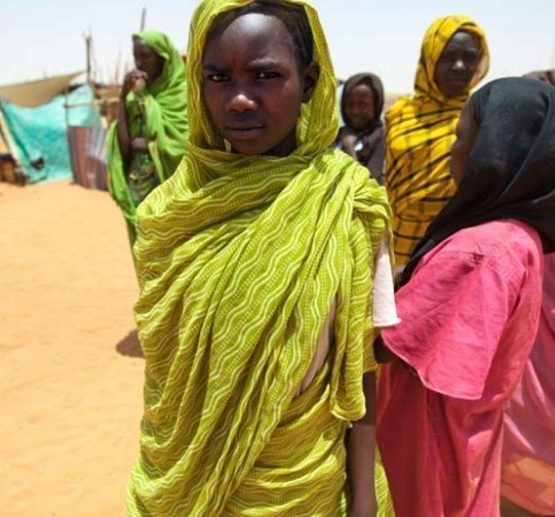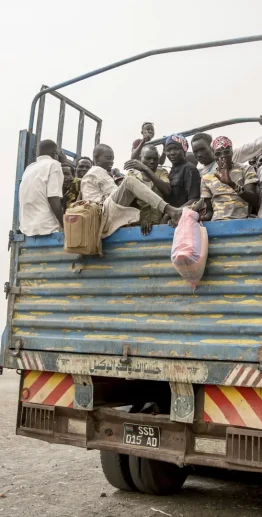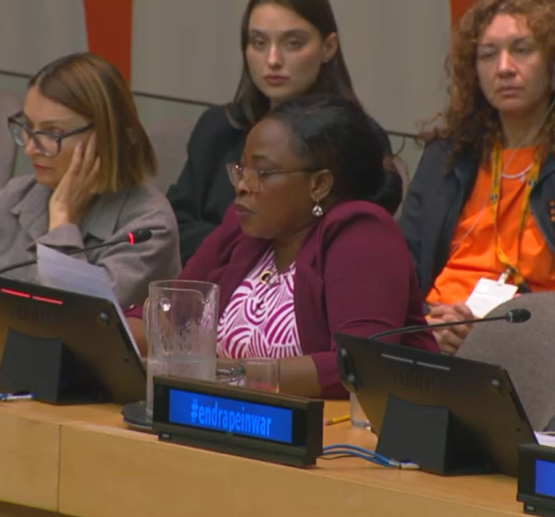Darfur Women Action Group (DWAG) welcomes the signing of the Sudan Framework Agreement but is cautiously optimistic about its effectiveness and the commitment and political will of the parties to the agreement. Any step toward peace and stability in Sudan is an important step as peace and stability will move the country forward, but the challenge is in the details and willingness to implement the agreement.
We and the overwhelming majority of Sudanese are skeptical because of our past experiences and seeing that the parties to the agreement include the same people who have constantly violated all past agreements, including the most recent Sudanese interim constitution. The military coup has shocked the world’s consciousness and wiped out all the gains that Sudanese people had achieved over the course of two years.
As we closely monitor the situation on the ground and negotiations continue, we wish to echo similar concerns to what Human Rights Watch (HRW) expressed on the deteriorating condition of human rights in Sudan and the importance of ensuring that the agreement must prioritize accountability (instead of impunity) for the military leaders.
This framework, signed on December 5 by political parties led by the Forces for Freedom and Change-Central Council (which formed the civilian component of the former transitional government) and the military leadership, calls for complete civilian authority at every level of governance, officially declaring Sudan as “a civilian, democratic, federal, parliamentary state in which sovereignty is for the people who are the source of powers, and in which the rule of law and the peaceful transfer of power through free and fair elections and the equitable division of wealth and resources, prevail”. The agreement also emphasized that there would be “one national professional army, committed to the unified military doctrine and carrying out its duties in the framework of protecting the nation’s borders and defending democratic civilian rule”.
However, five important issues are currently pending further agreement, slated to take place by the end of this December. One of these issues is transitional justice, which is closely tied to immunity from prosecution for the military for crimes committed during the violent crackdown from June 3 to June 18 in which it killed at least 120 people whilst injuring another 900, as well as other killings and assaults, arbitrary detention, and torture. It is alarming that the military is demanding immunity from prosecution for the violations it committed after the 2019 and 2021 coup d’états.
At DWAG, we wish to remind the international community and make it clear to the stakeholders overseeing negotiations that the crimes committed against the people of Darfur are international crimes of serious concern — genocide, war crimes, and crimes against humanity — and that under international law and the Rome Statue, there is no impunity for such heinous crimes. We further stress that crimes committed against protesters during June 3rd and other protests are tantamount to crimes against humanity and must not go unpunished. This includes impunity for the Rapid Support Forces (RSF), who continue to wage systemic genocidal attacks to this day. We fear that the RSF’s close connections to military leaders may allow them to continue escaping accountability for their abuses and, by proxy, commit more atrocities to stay in power. We believe that the longstanding impunity for leaders in Sudan has enabled these continued violations of human rights. We wish to caution the international community and the Sudanese leaders who are involved in these negotiations, including the US and other international governments, that Sudan will not move forward without accountability, no matter what the agreement stipulates. We further wish to remind both Sudanese leaders and the international community that because of impunity the 2019 interim government has failed, as well as of HRW’s statement on the Sudanese framework agreement, which warned that ‘’accountability is critical for the future and should not be swept under the rug’’ and emphasizing how the last 14 months fostered widespread impunity that, in turn, enabled abuses to occur.
We are highly concerned about the misinterpretation of transitional justice and wish to remind the actors and stakeholders working in Sudan that they must not advocate transitional justice when there is no transition in Sudan. The majority of Sudanese (particularly those who have been victimized for more than 20 years in Darfur) demand accountability, peaceful transition, and the return of displaced persons before they can begin to speak about transitional justice
Therefore, we at DWAG call for the guarantee and implementation of strong accountability measures for all violent actors. We call on the global community, the United States, and the United Nations Security Council (UNSC) members to take the following measures to help end the Sudanese junta’s human rights violations and restore the civilian government:
- Support the ICC in investigating past and present serious international crimes and bringing those responsible to trial,
- Hold those responsible for the coup and other human rights violations accountable by imposing targeted sanctions, travel bans, and asset freezing,
- Authorize neutral UN or international forces to protect civilians and prevent political and ethnic violence to ensure a successful transition to democracy in Sudan,
- Pressure the parties to ensure the agreement includes holistic justice that prioritizes criminal accountability and all other forms of accountability and restorative justice,
- Ensure that establishing records for atrocities committed in Darfur and Sudan, documentation, and further investigation are the prerequisite steps to transition,
- Guarantee formally that the agreement must be inclusive and prioritize women’s participation at all levels of governance and decision-making.
It is imperative that the US and other international and regional actors stand with the people of Darfur and Sudan, not the illegitimate government, by prioritizing accountability, human rights protection, and respect for human dignity. We at DWAG encourage our supporters to speak up, amplify the voice of the people of Sudan, and call on their leaders to take swift action in ending the suffering, impunity for crimes, and authoritarian rule that has long plagued the nation. Through working together, we can make a difference!
Latest Features and News
Latest Headlines
Sudanese seek refuge underground in besieged Darfur city
March 15 - 2025
Sudan facing ‘the abyss’ unless war ends as…
March 13 - 2025
+ Read MoreLatest Headlines
Sudan war: Children facing ‘unimaginable suffering’, warns UNICEF…
March 13 - 2025
MSF pulls out of famine-stricken camp in Sudan’s…
February 24 - 2025
+ Read More


